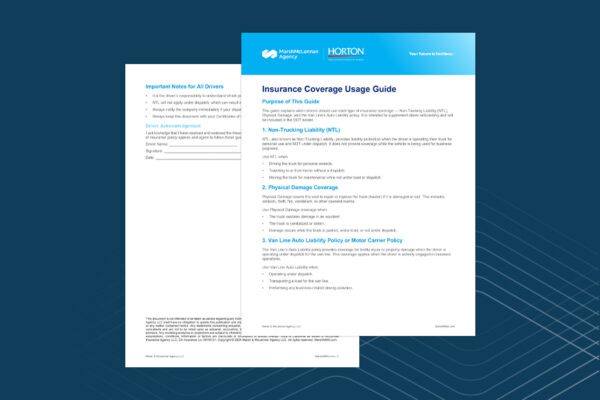Reprinted with permission from Malecki Brooks Law Group, LLC
Medicare and Medicaid fraud are extremely serious legal problems in the United States, and the federal government treats them as such. In 2019, the rate of fraudulent improper Medicare payments was 7.25% of all claims, resulting in $28.91 billion in improper payments. For fraudulent Medicaid payments, they were 14.90% of claims and $57.36 billion in improper payments.1
Fraud is defined very broadly under the U.S. “Fraud and Abuse” laws (described below), and does not necessarily involve “intent” to defraud the federal government. Any health care agency which bills the government for medical services under Medicare or Medicaid may inadvertently be in violation of these laws unless they have in place a vigorous healthcare Corporate Compliance Program (CCP) to monitor and prevent overbilling and other abuses under these programs.
The primary federal agencies responsible for enforcing the laws to prevent Medicare and Medicaid fraud to recover improper payments are the U.S. Department of Justice (DOJ), the U.S. Department of Health and Human Services’ (DHS) Office of Inspector General (OIG), and the U.S. Centers of Medicare and Medicaid Services (CMS). These agencies enforcing the laws do so under the U.S. Fraud and Abuse laws which can involve criminal sanctions, draconian fines and penalties, imposition of a detailed Corporate Integrity Agreement (CIA) upon the healthcare provider, and even possible decertification by Medicare and Medicaid. The three basic Fraud and Abuse statutes, which are now incorporated into The Patient Protection Affordable Care Act of 20102 (“Affordable Care Act” or “ACA”), are as follows:
- The U.S. False Claims Act3 which prohibits any person from knowingly presenting to any officer or employee of United States a false or fraudulent claim for payment. Violations can be punishable by criminal sanctions, substantial penalties of $11,000-$55,000 for each false statement or misrepresentation of a material fact (i.e., for each claim filed) plus triple damages.4
- The U.S. Anti-Kickback Statute5 which prohibits anyone from soliciting or receiving any remuneration, including kickbacks, directly or indirectly, “in return for referring an individual to a person for the furnishing of any services for which payment may be made under a Federal health care program.” Violation for any person or entity who receives or pays such kickback is a criminal felony punishable up to 5 years in prison, as well as fines and disqualification from Medicare and Medicaid reimbursement for services. Under the Affordable Care Act, any violations of the U.S. Anti-Kickback Statute based on illegal kickbacks or referrals are “healthcare fraud” and also violate the U.S. False Claims Act.6
- The U.S. Stark Law7 which prohibits a physician from referring Medicare or Medicaid patients to entities for the provision of designated health services if the physician has a “direct or indirect financial relationship with that entity.” This is a strict liability statute that can also result in substantial financial penalties and disqualification of a physician, medical provider or hospital from participation in Medicare and Medicaid. No intent is required for a violation to occur. Under the Affordable Care Act, any violations of the U.S. Stark Law also are ”healthcare fraud” and violate the U.S. False Claims Act.8
Examples of violations under the above “Fraud and Abuse Laws” can include alteration of a claim, incorrect coding, double billing, submitting false data, billing for services/supplies not supplied, misrepresentation of services/supplies, substitution of services, kickbacks, making illegal referrals, falsifying credentials, fraudulent enrollment practices, fraudulent third party liability reporting and fraudulent recoupment practices.
The way any healthcare provider can prevent even inadvertently from violating any of these statutes is to establish a viable Corporate Compliance Program (CCP). The Affordable Care Act makes a CCP mandatory for providers of services under Medicare and Medicaid, which consists of the following 7 elements.9
- Be overseen by a Compliance Officer.
- Establish health care Compliance Policies and Procedures.
- Provide Training and Education to all employees regarding the CCP.
- Monitor and Audit internal practices to detect and investigate any compliance violations.
- Establish Communications between staff and employees to enable staff to report compliance violations through the establishment of a confidential and anonymous “hot-line” and through other mechanisms.
- Timely Respond to compliance violations, including the requirement that all health care providers filing claims for Medicare and Medicaid reimbursement regularly monitor such claims for errors, and “report and return” any overpayments within 60 days of discovery of such errors.10
- Discipline any persons who violate Compliance laws.
Malecki Brooks Law Group, LLC provides healthcare compliance services to hospitals, healthcare clinics, FQHCs, physician practices, and other healthcare organizations. We can work with your internal Compliance Officer, or you can consider outsourcing your Compliance Officer function to us.
1 2020 Estimated Improper Payment Rates for U.S. Centers of Medicare and Medicaid Services (CMS) Programs (CMS, Nov. 16, 2020).
2 The Patient Protection Affordable Care Act of 2010, Pub. L. No. 111-148, 124 Stat. 119-1045, 42 U.S. Code §300gg et seq., as amended by the Health Care and Education Reconciliation Act of 2010, Pub. Law No. 111-152.
3 31 U.S. Code §§3729-3733.
4 31 U.S. Code §3729(a)(1)(G), amended by ACA §§6402, 6408; 42 U.S. Code §1320a-7a(a).
6 ACA, §6402(f).
7 42 U.S. Code §1395nn.
8 ACA, §6402(f).
9 ACA, §§6102, 6401.
10 42 U.S. Code, §1320a-7k.
Material posted on this website is for informational purposes only and does not constitute a legal opinion or medical advice. Contact your legal representative or medical professional for information specific to your legal or medical needs.



